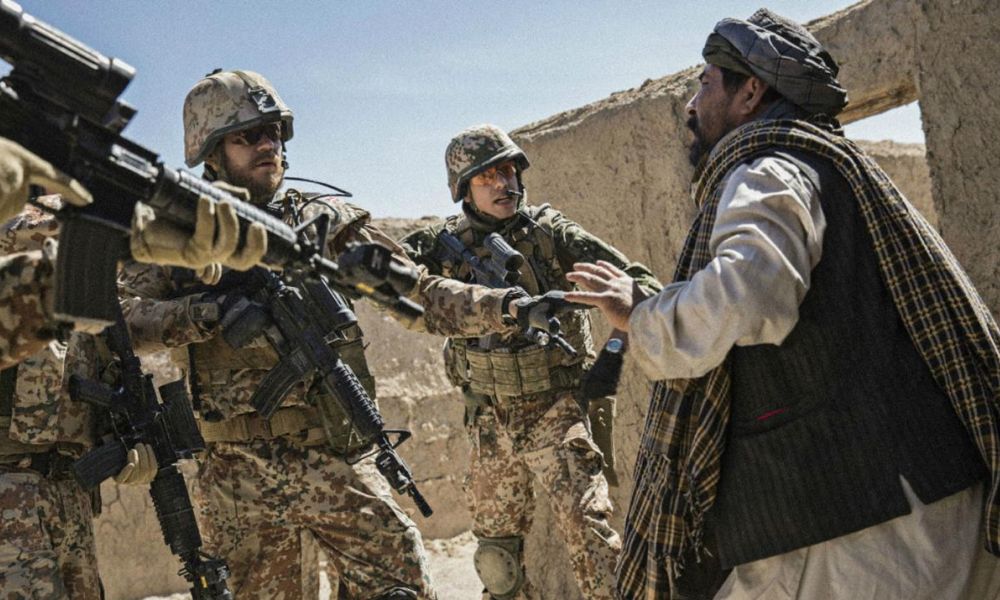 (2 / 5)
(2 / 5)
Few scenarios lend themselves to dramatization better than the battlefield and the courtroom.
The blood and chaos of the former; the eloquence and order of the latter. What Tobias Lindholm’s recent Best Foreign Language nominee, A War, does is reveal the paradox of trying to impose the process of law after the fact.
The film impresses this haziness upon us, moral and otherwise, from the off as the figures of camouflaged soldiers gradually become apparent amid the dust and rocks of Helmand province. The men are, to start with, almost indistinguishable from their situation. All is calm, the camera tracking in on their lower halves as they make their way cautiously across the landscape. And then the bomb goes off.
Commander Claus Michael Pedersen (Pilou Asbæk — Borgen) is an exemplary soldier; a good leader and one who inspires loyalty, working with the local villagers to bring peace to the region. Joining his men on patrol, Pedersen intervenes to provide urgent medical attention to an Afghani girl; inadvertently marking her and her family for death at the hands of the Taliban.
Meanwhile, back in Denmark, Claus’ wife, Maria (Tuva Novotny — Eat, Pray, Love), is caught up in a conflict of her own — albeit one with errant and misbehaving kids. Even as her husband’s team in defusing an IED, Maria is dealing with a child who’s locked himself in the car. A War doesn’t make light of these parallels, though; both the home-front and the battlefront are presented in near documentary style.
The whole film is suffused with a sense of agoraphobia. The danger and the confusion doesn’t lie in the dark, confined corridors of the local mud huts, but out in the bright sunlight and the space. It’s in this confusion that something terrible happens; though as the military helicopter drifts off into the distance we might not realize it. Soon after Pedersen finds himself charged with a war crime and is promptly shipped home.
It’s here that A War changes from a military to a well-lit almost airy legal procedural as an inquiry is launched to determine the legality of his actions. How can a soldier act honorably in an environment where the enemy surrounds themselves with civilians and how do you account for it after the fact, both as society and as an individual?
After tucking his children into bed, Pedersen broods, hooded and smoking in the garden. Asbæk brings an understated intensity to the role, his green eyes flashing with sudden recollection or guilt; think Michael Shannen without the innate savagery of feature. Lindholm’s restrained, minimalist depiction — he also scripted the film — draws out the moral ambiguity of the situation, but it also makes a case study of the drama.
When Pedersen has a confession to make to his wife, the camera cuts away to outside the living room window; the trees rustling over their muted conversation. The lack of histrionics, while commendable, leads, ironically for a film called A War, to too little conflict.
Moral relativism is all very well and good, but you need to take a stand somewhere.
